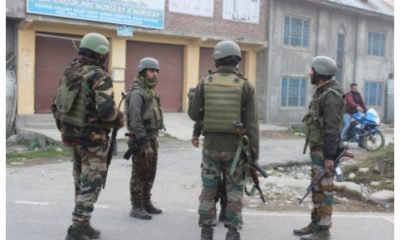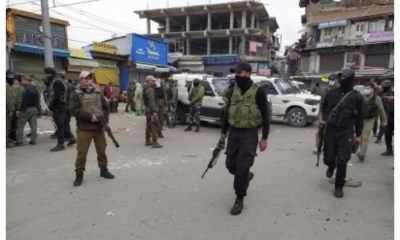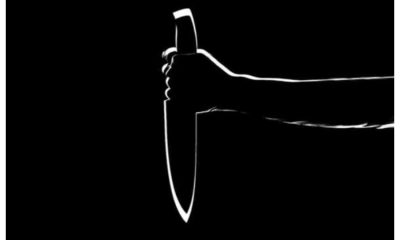Crime
More ‘surgical strikes’ in offing in Kashmir University
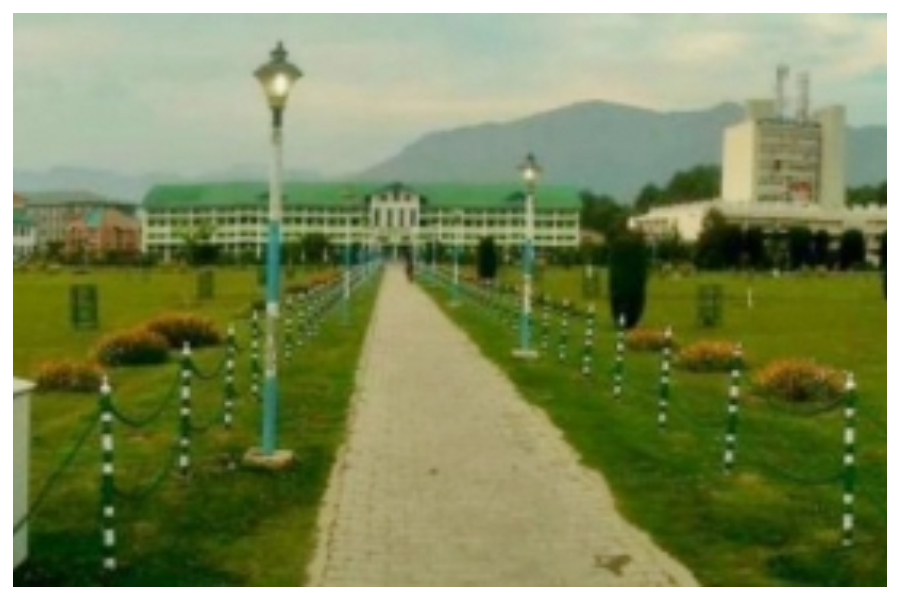
Hardly a week after he got the Ph.D. degree from Kashmir University, Rafi Bhat was killed on May 6, 2018 along with four other militants in Shopian district.
Rafi was serving as an assistant professor in the sociology department of the University on a temporary basis.
Two days before he was killed in an encounter in Shopian district, Rafi Bhat, had put out a series of Facebook posts, which indicated that he had shared his plan to give up teaching and pick up arms with his students.
Rafi served as an archetypal example of what had been going on in the University for over three decades. The ‘infiltration’ of secessionist elements and their ideologues into the various departments and administrative sections has been no secret.
The ‘secessionist intellectualism’ had found its ultimate seminary in Kashmir University with the shameful murder of its Vice Chancellor, Mushirul Haq and his secretary, Abdul Gani Zargar whose bodies were found on April 10, 1990, four days after the duo was kidnapped by the terrorists from their office in the University.
Valley’s highest seat of learning remained under the de facto control of the secessionists who ensured their control by positioning ‘loyalists’ at vital positions in academia and administration.
The only debate in the inner circles of this University for three decades was whether Kashmir should become independent or merge with Pakistan. Remaining a part of India was out of the question.
The radicalisation of the University was so complete that even admissions to various departments were done on recommendation of the secessionist leaders and militant commanders.
Shootouts between those who stood for ‘independence’ and those for merger with Pakistan were reported from within the campus during the mid 1990s.
Intelligence agencies, both Central and state, had mountain loads of inputs about the radicalisation of the University students.
As a senior intelligence officer put it, “Those were reports, but not all of them had actionable inputs and whenever we got actionable inputs, we acted.”
In layman terms, ‘actionable input’ meant the presence of a militant with weapons or presence of some communication network or any information about a wanted person hiding inside the campus.
What unfortunately was missed during all the past years was that for creating the ‘soldiers of Jehad’ you don’t need the presence of weapons.
The nurseries of ‘Jehad’ are nurtured in young and intellectually impressionable minds and that was what had been happening in the University.
Interestingly, even during the official functions where the chancellor (state Governor) and the vice chancellor would be present, no student would stand up in deference to the national anthem.
The worst part of that story was that even some of the faculty members would also refuse to stand up when the national anthem was being played.
The recent dismissal of professor Altaf Hussain Pandit of the University’s chemistry department has proved that the intelligence agencies have been able to find what they call ‘actionable evidence’.
Pandit’s dismissal could be the beginning of an ‘operation clean up’, the Lt. Governor Manoj Sinha’s government has decided to undertake in the University.
Post abrogation of Article 370, two discreet analyses of the academic and student activities in Kashmir University have been carried out, said top intelligence sources.
These analyses have shown that “Three faculty members have been contaminated to an extent that requires immediate action.
“12 faculty members have been found contaminated to a lesser extent that needs a graded response.
“24 members of different faculties are contaminated to an even lesser extent who need counselling and observation,” intelligence sources revealed.
The intelligence reports have also suggested long term measures to carry out reforms to ensure a free academic atmosphere in the University and also an atmosphere for recruitments that is free from nepotism, corruption and favouritism.
Presently, the intelligence agencies are carrying out analyses of the non-teaching staff.
What becomes clear from these intelligence reports is that in the not very distant future, the University would see more heads rolling to restore the academic excellence for which the University was once famous.
Crime
‘Fearing’ SIR, another person dies by suicide in Bengal’s Nadia district
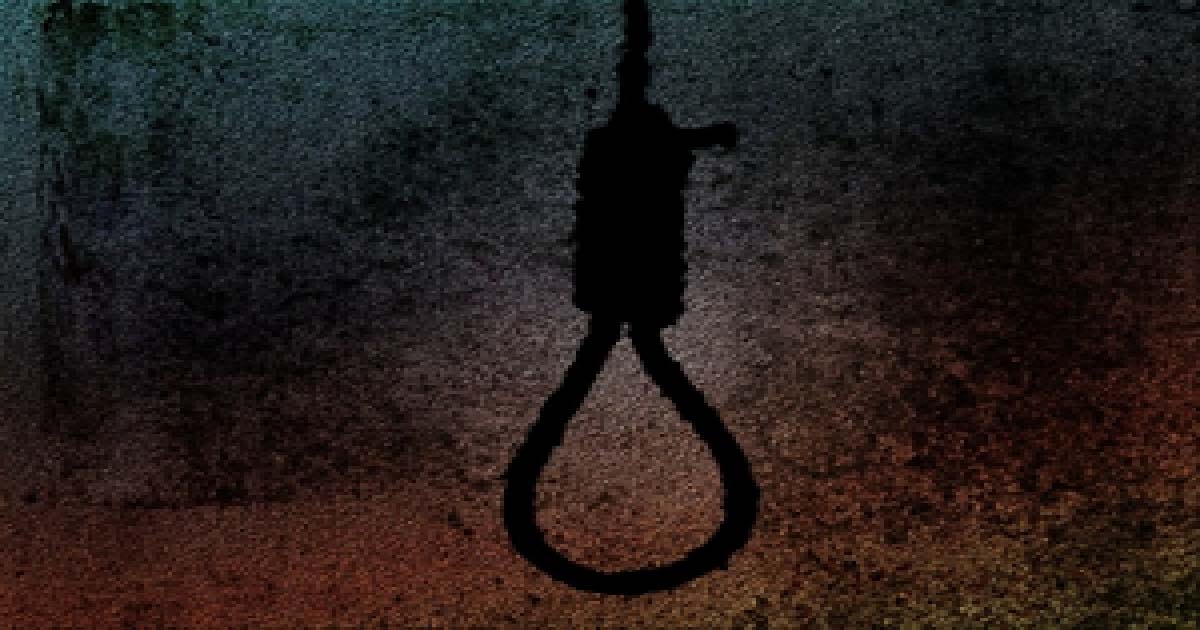
Kolkata, Dec 15: Another person has died by suicide due to alleged fear of the Special Intensive Revision (SIR) exercise of the voter list being carried out by the Election Commission, in West Bengal’s Nadia district, said the police on Monday.
An elderly man in the Ranaghat area of the district has taken his own life. The deceased has been identified as Sushanta Biswas (60). His family claimed that he committed suicide by hanging himself at his home due to this fear on Monday morning.
According to the police, Sushanta Biswas lived in Matikumra Madhyapara under the Dhantala police station in Ranaghat. He worked in Kolkata.
According to his family, Sushanta Biswas had been living in fear since the SIR process began in the state. He was worried because his name was not on the 2002 voter list. He even stopped going outside. Neighbours tried to reassure him, but his fear persisted. He became increasingly depressed, fearing that his name might be removed from the voter list and that he might have to leave his home and move elsewhere.
A family member said Sushanta Biswas had filled out the enumeration form.
His wife, Namita Biswas, said, “He was always afraid. He had almost stopped talking. We tried to explain things to him, but he would only talk about the SIR. He would say, ‘If they take me to jail, I will get a six-year sentence’. My mother-in-law’s name is on the 2002 list. Our names were removed because we were living away. This morning, I woke up to find him hanging with a towel around his neck.”
A senior officer of Ranaghat Police District said, “The body has been recovered and sent for autopsy. It has been learnt that he died by suicide after living in fear for some days over his name not being on the 2002 voter list. A case has started. Investigation is underway.”
A few days ago, another person had similarly died by suicide in the same district over alleged fear of the Election Commission’s SIR process.
Crime
Mumbai: Malad Police Bust Fake Gold Racket, Arrest 5 In ₹25 Lakh Fraud

Mumbai: Malad police have arrested an interstate gang of five for cheating shop owner Dinesh Mehta of Rs 25 lakh by selling him fake gold. The accused, primarily from Rajasthan, were arrested in Gujarat and Virar.
The main accused, Babulal Waghela, who is wanted in multiple cases, falsely claimed to have discovered gold while digging near a Nashik temple. The gang gained Mehta’s trust by first showing him a silver coin, then giving him genuine gold beads to test. After Mehta handed over Rs25 lakh, they gave him a necklace made of copper and nickel.
Police traced and arrested Waghela, his wife, and three others, successfully recovering Rs15.45 lakh in cash. A fifth accused, Govind, remains wanted.
Crime
Bihar: Robbers posing as police steal goats purchased under CM’s scheme

Patna, Dec 12: A shocking incident has emerged from Samastipur’s Vidyapati police station area, where four men posing as police personnel stole goats purchased under Chief Minister Nitish Kumar’s Women’s Employment Scheme.
The incident occurred on Friday in Dhaneshwarpur South Panchayat, Ward No. 9, when the victim, Champa Devi and her family were asleep.
Suddenly, a four-wheeler pulled up outside their home, and the men inside woke the family.
Claiming they were police officials searching for a liquor mafia suspect, the men forcibly entered the premises.
Inside, they took away four goats that Champa Devi had bought using the Rs 10,000 financial assistance she received under the Women’s Employment Scheme.
When she tried to stop them, the accused reportedly brandished a pistol, abused her, and threatened to kill her.
“They said they were police and that a liquor mafia had passed that way. They showed a pistol and told us to move aside. Fearing for our lives, we stepped back. They loaded all four goats into their vehicle and fled,” said Champa Devi.
The same group allegedly targeted another house nearby, stealing three more goats.
According to the victims, they too had purchased the goats with government assistance.
Before the villagers could understand what was happening, the thieves fled in their vehicle with all seven goats.
Locals have demanded strict police action. However, Vidyapati police said they are awaiting a formal complaint to begin proceedings.
“A report of theft has been received, but no application has been filed yet. Action will be taken as soon as we receive it. The gang involved is being investigated,” said Suraj Kumar, Police Officer, Vidyapati Police Station.
The area has witnessed several such goat thefts in the past. Thieves often arrive in four-wheelers—not on motorcycles or on foot—making quick escapes difficult to track.
In an earlier incident a few years ago, villagers even held a DSP hostage after mistaking him for a goat thief.
Under Chief Minister Nitish Kumar’s Women’s Employment Scheme, women are provided Rs 10,000 each to start income-generating activities.
So far, 1.56 lakh women have received the amount. After six months of evaluation, beneficiaries showing positive outcomes become eligible for Rs 2 lakh in additional support to expand their ventures.
-

 Crime3 years ago
Crime3 years agoClass 10 student jumps to death in Jaipur
-

 Maharashtra1 year ago
Maharashtra1 year agoMumbai Local Train Update: Central Railway’s New Timetable Comes Into Effect; Check Full List Of Revised Timings & Stations
-

 Maharashtra1 year ago
Maharashtra1 year agoMumbai To Go Toll-Free Tonight! Maharashtra Govt Announces Complete Toll Waiver For Light Motor Vehicles At All 5 Entry Points Of City
-

 Maharashtra1 year ago
Maharashtra1 year agoFalse photo of Imtiaz Jaleel’s rally, exposing the fooling conspiracy
-

 National News1 year ago
National News1 year agoMinistry of Railways rolls out Special Drive 4.0 with focus on digitisation, cleanliness, inclusiveness and grievance redressal
-

 Maharashtra1 year ago
Maharashtra1 year agoMaharashtra Elections 2024: Mumbai Metro & BEST Services Extended Till Midnight On Voting Day
-

 National News1 year ago
National News1 year agoJ&K: 4 Jawans Killed, 28 Injured After Bus Carrying BSF Personnel For Poll Duty Falls Into Gorge In Budgam; Terrifying Visuals Surface
-

 Crime1 year ago
Crime1 year agoBaba Siddique Murder: Mumbai Police Unable To Get Lawrence Bishnoi Custody Due To Home Ministry Order, Says Report





